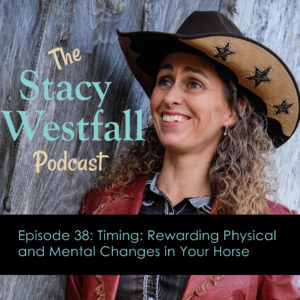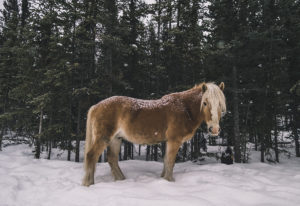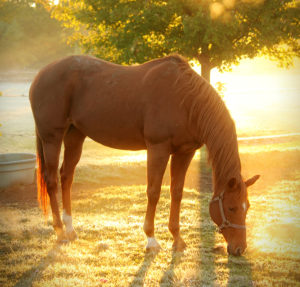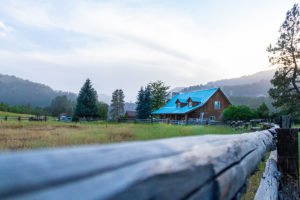Episode 38: Rewarding Physical and Mental Changes in Your Horse

Timing is everything when it comes to horse training. I don’t want to put any pressure on you, but you need really good timing.
Your timing may never be perfect, but it can always be improved. In a future episode, I will also talk about how in the beginning, your timing is everything and then once the horse picks up more responsibility your timing is less important. This is such a great topic, because the contradictions can be almost mind-blowing, yet the subtleties are so important to learn.
This episode is all about the importance of timing. I talk about how to improve your timing and common mistakes I see in timing. Then is my segment with Dr. Monty we discuss electrolytes and cooling down your horse. You don’t want to miss this, because Dr. Monty gives me a cooling tip that I’ve never heard before.
“Your horse will reveal to you the spots where you have the weakest understanding.” Stacy Westfall Click To Tweet
Show Notes:
[02:18] Physical timing is the first thing that people are able to see and identify. Later on people develop the ability to reward mental timing.
[03:50] Your horse will reveal to you the spots where you have the weakest understanding.
[04:37] A listener question about timing. He has trouble loading into the trailer.
[06:26] The horses fear is often a lack of understanding. The horse needs to be desensitized to the stimulus that causes the fear. He also needs to be sensitized to the halter.
[08:43] The goal is to see an emotional balance across the board.
[10:16] When you say, ‘Sometimes it works and sometimes it doesn’t’…this means that there are holes in the training.
[14:26] Pulling the horse on the trailer is never a good idea.

[16:57] When your horse sees the trailer his brain doesn’t want to go on to it, so his feet don’t move. Finding the answers can get very layered.
[18:28] You can hear all aspects of the four square model in trailer loading. The riders mind, the rider’s body, the horse’s mind, and the horse’s body.
[18:47] There’s a difference between physical timing and mental timing. Physical timing is a great place to start.
[20:12] The horse can’t squeeze between your body and the trailer if you’re standing with your shoulder against the trailer.
[21:45] Without the clarity of a goal, people can be unclear.
[23:28] The lead line is in your left hand. The moves you make can be like a chess game. Put a light pressure on the lead rope.
[25:00] Watch your horse as you take the slack out.
[29:52] Look at his eyes. If he looks asleep, he’s ready for another question.

[31:04] Patience is an underused tool.
[32:27] Timing is tied to what he is thinking.
[35:15] Pick up the slack again. Are his eyes wide?
[38:08] Raise your right hand. What did your horse say? Pay attention to the little details.
[44:02] Groundwork is all done with timing.
[45:16] I love liberty work. Part of our job is to teach horses to speak human. A horses reaction to pressure in a healthy way can keep them safe.
[48:03] When you start to see what is happening, it gets fun, because you can see the problem ahead and be proactive.
[49:05] A question about a young horse and directing his attention to a different spot.
[54:15] Engaging a horse in the conversation takes away the boredom.

Dr. Monty and I Discuss Electrolytes and Dealing With the Heat
[55:12] When it’s hot what signs indicate stress and is white block salt enough?
[55:33] The salt contains electrolytes which helps cool the horse and improves the cardiovascular system.
[56:02] White salt may not be enough. When it’s really hot put an electrolyte supplement into the feed.
[57:01] If it’s too hot for you, it’s probably not the best time to ride. Start early or wait until the evening. Horses deal with heat through respiration and sweating.
[57:49] Placing ice on the jugular vein will cool the blood flow which helps to cool the body.
“The horse’s fear is often a lack of understanding.” Stacy Westfall Click To Tweet
Links and Resources:
Trailer Loading Videos: Follow the link and then use the coupon ‘Podcast’ to receive free access and free updates
Episode 30: Correcting Behavior We Dislike In Our Horses
Equithrive Use the code ‘Stacy’ for 10% off and free shipping
1 Comments
Leave a Comment
SUBSCRIBE TO THE PODCAST HERE:





YOURS FREE
WHY IS MY HORSE...?




Quite frankly, Stacy, this episode was my favorite yet! I just finished re-listening to it for the second time, so I went back each time I listened and re-listen to certain parts catch them better try to better visualize what was going on. There are so many little bits of lightbulb moments that that discussion gave to me, including the realization that maybe why there are gaps in my training is because he is so smart and would catch on so quickly to things that I wouldn’t spend a lot of time on them but rather just move onto the next thing throughout his training process. Which is why some of the issues that were discussed in this episode make me go all the way back to the kindergarten classes so to speak and think that I should spend a little bit more thank you again so much for these awesome podcast! And I too, I had never heard of the ice on the jugular idea… Which is particularly amusing to me as I am a veterinary technician! Amusing only in that I hadn’t thought of it myself! Ha ha but, I will definitely keep that in mind for the next hot day we experience.